With one whole avocado providing just 3.5g net carbs, avocados are definitely a low-carb food.
Not only are they low in net carbohydrates, avocados are also exceptionally rich in fiber, fat, protein vitamins, minerals, and phytochemicals. The creamy avocado is also moderately high in calories.
The unique nutritional profile of avocados makes it an ideal plant food on keto. To learn more about why you should consider avocados for your keto then keep reading. We talk about avocado nutrition, health benefits, and usefulness on the keto diet.
How Many Carbs in Avocado?
One California avocado weighing around 200g (7oz) contains 17g of carbohydrates in total. Of these a bit over 13g are dietary fiber. That means that there are only around 3.5g of net carbs in a whole avocado. Most people consume only half an avocado a day, which would mean that you get only 1.75g of net carbs in a typical serving of avocado.
Most carbs in avocado are glucose, and a smaller amount is fructose, sucrose, galactose, and starch. Glucose is a simple sugar found in most plant foods. It leads to a sharper increase in blood glucose than complex carbs. However, glucose amounts are too low in avocados to cause noticeable changes in blood glucose.
Furthermore, fiber makes up 80% of the carbohydrates in avocados, and 70% of its total fiber content consists of insoluble fiber 1. Insoluble fiber helps food quickly pass the digestive tract, and may be beneficial for weight loss 2. Soluble fiber makes around 30% of the fibers in avocado, and it promotes good gut health.
How many calories in avocado?
Avocado is moderately high in calories. One typical California avocado (200g) will give you about 322 calories. Most of these calories (80%) are from the fat in avocado. A whole California avocado contains almost 30g of fat, the majority of which is monounsaturated (MUFA). MUFA is considered healthier for heart health than other fats.
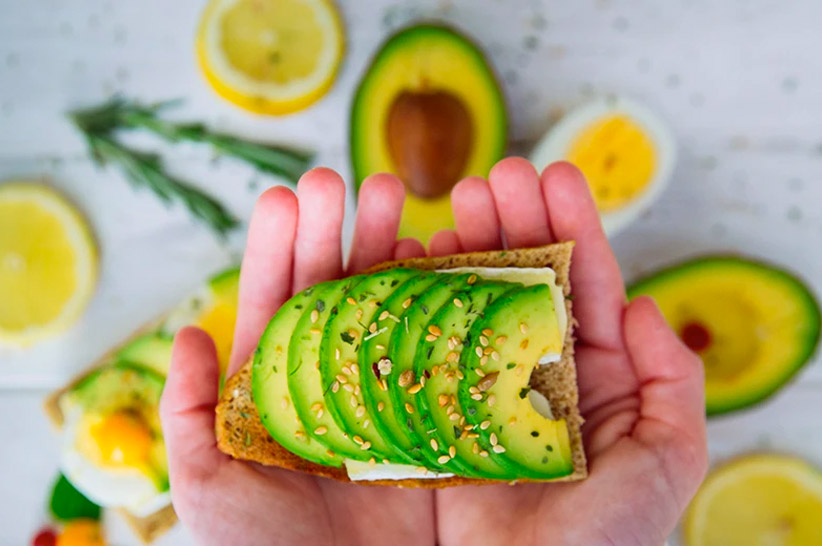
Only a small number of calories in avocado come from protein and carbohydrates. That’s not only because these two macros are found in negligible amounts in avocado, but also because protein and fat provide fewer calories than fat for the same amount of weight.
Nutritional value of avocado
avocados are generally considered a nutrient-dense food. However, nutrient density means different things to different people 3. The Aggregate Nutrient Density Index (ANDI) score, for example, defines nutrient dense foods as those that provide the highest number of nutrients for fewer calories 4. Because avocados provide lot of calories with their other nutrients, they score low on ANDI.
But if you’re on a keto diet, avocados are a nutrient dense food. The extra calories in avocados from fat are a good thing on a keto diet since those calories will be converted into ketones and not stored as body fat. Other nutrients found abundantly in 1 California avocado include:
- Vitamin C – 20mg (33% DV)
- Vitamin E – 4.2mg (21% DV)
- Vitamin K – 42.2mcg (53 DV)
- Riboflavin – 0.3mg (15% DV)
- Niacin – 3.5mg (17 % DV)
- Vitamin B6 – 0.5mg (26% DV)
- Folate – 163mcg (41% DV)
- Vitamin B5 – 2.8mg (28% DV)
- Choline 28.5mg
- Magnesium – 58.3mg (15% DV)
- Potassium – 975mg (28% DV)
- Copper – 0.4mg (19% DV)
- Manganese – 0.3mg (14% DV)
| Nutrition Facts: One California Avocado (201g) |
| Calories 322 kcal |
| Total Carbohydrates 17.1g |
| Fiber 13.5g |
| Protein 4.0g |
| Total Fat 29.5g |
| Vitamin C 20.1mg |
| Vitamin B6 0.5mg |
| Folate 163mcg |
| Vitamin A 293 IU |
| Magnesium 58.3mg |
| Potasium 975mg |
As you can see, avocados pack a punch of vitamins and minerals. Another thing to note about avocado nutrition is that it’s a great source of plant proteins providing 4g (8% DV) per avocado.
Can You Eat Avocado on The Keto Diet?
You can and should eat avocados on a keto diet because they are low in carbs and high in fat. Exceptional nutrient density and high-fiber content are other nutritional reasons to include avocados into your keto meal plan.
Besides offering great nutrition, avocados are also versatile. You can use avocados for making both sweet and savory dishes. They’re also great as a filling ingredient.
Health Benefits of Avocado
Like many other plant foods, avocados come with a wide range of health benefits. Many of their benefits are directly due to the healthful nutritional profile of avocados, but some are also due to antioxidants and phytochemicals in this fruit. Below are just some of these benefits explained:
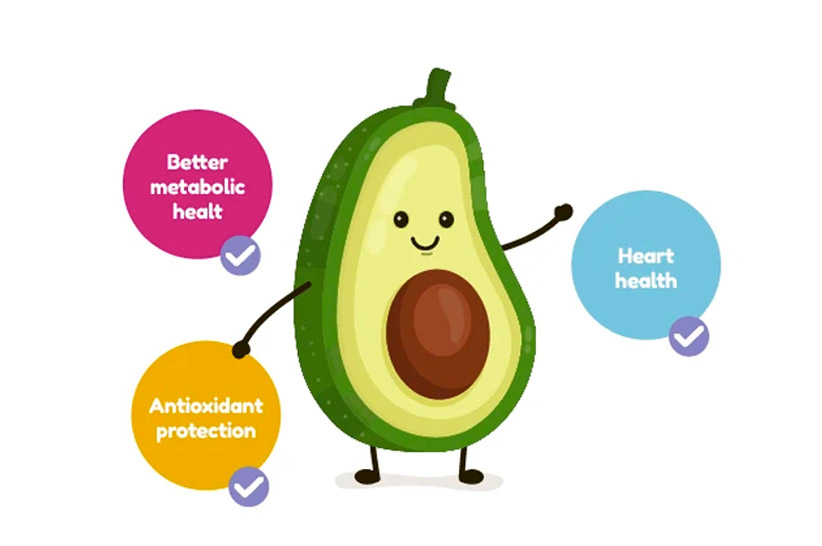
Better metabolic health
One recent systematic review concluded that there’s plenty of evidence that avocados reduce diseases associated with poor metabolic health 5. These disorders include high blood pressure, diabetes, obesity, blood clots, and atherosclerosis.
Antioxidant protection
Oxidative stress is a condition where your body is not able to control the damage caused by free radicals. Increasing your intake of foods rich in antioxidants such as avocados is proven to help reduce oxidative stress and its related diseases (e.g. neurodegenerative disease) 6.
Heart health
Avocados contain heart-healthy MUFAs along with other nutrients and antioxidant compounds. This makes them good for heart health independent of their effects on blood lipids. Nonetheless, a systematic review published recently found that avocados help increase good HDL cholesterol, which is known to improve heart health 7.
How to Eat Avocado on Keto?
You can enjoy avocados on a daily basis on a ketogenic diet. They will help you hit your keto macros, boost your intake of important micronutrients, improve your daily fiber intake, and promote good health. Here are some ways to eat avocados on keto to get these health benefits:
Add to smoothies
Avocados are a great low-carb substitute for bananas in smoothie recipes. They add bulk, texture, and fiber to any type of smoothie. You can use it for making green smoothies as well as berry-based smoothies.
To garnish meals
Add avocados to salads, soups, and use as a spread on keto bread. You can also include avocado as a stand-alone side dish for a wide range of keto courses. Another great idea is to make low-carb guacamole by halving the amount of onions, tomatoes, and garlic in guacamole recipes.
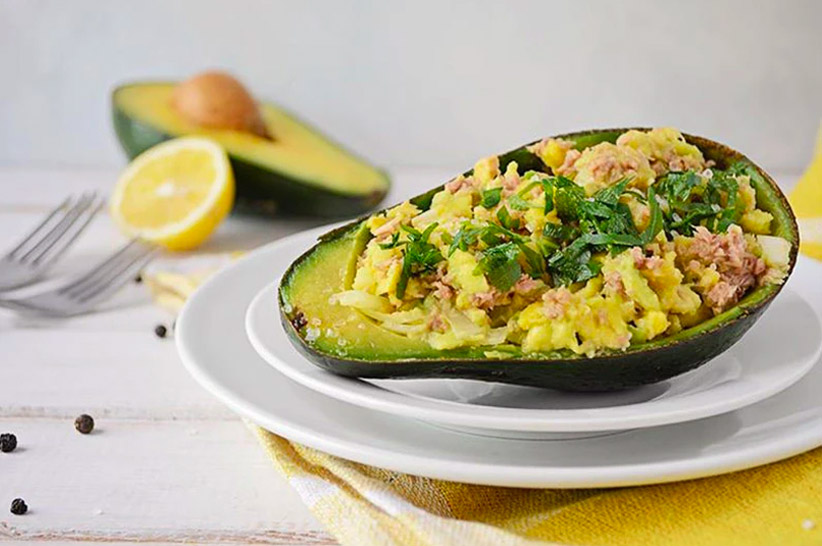
As a snack
Avocado is good all on its own as a snack. You can sprinkle some olive oil and add a dash of salt and pepper to make it more palatable. If you’re trying to reduce the caloric content of your keto snacks, then low-carb vegetables such as avocados and even celery or cucumbers are great options.
Takeaways
Being a low-carb but high-fat food, avocados are definitely considered one of the best keto diet vegetables out there. In fact, they’re one of the most popular keto diet staples right after butter and MCT oil. Not many low-carb plant foods have the impressive nutrition profile of avocados.
Definitely include avocados as often as possible in your daily meals. Try eating half an avocado a day and combine it with other low-carb vegetables and fruits.





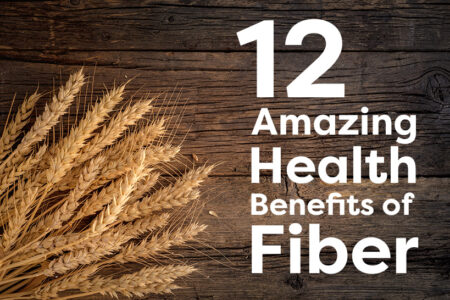




![Juicing for Weight Loss: Everything You Need to Know [Plus Recipes]](/wp-content/uploads/2019/08/Juicing-for-Weight-featured-image.jpg)






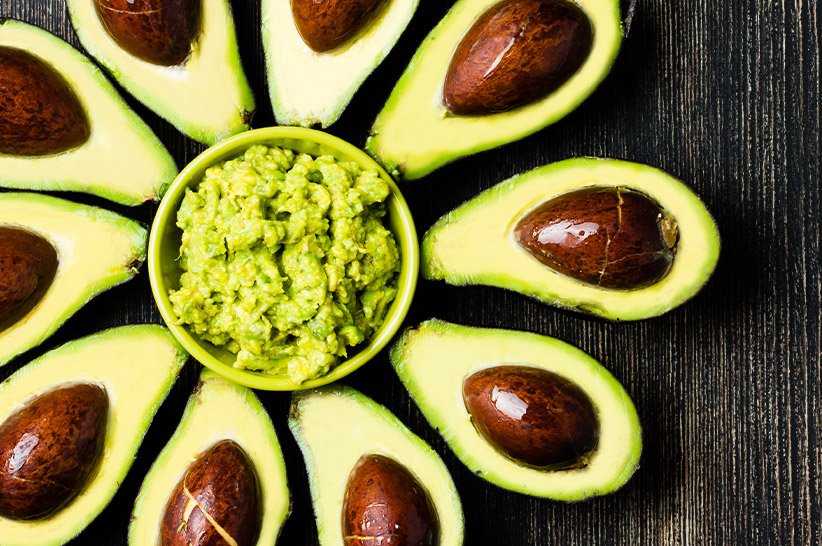


Very informative and helpful article. Thanks!